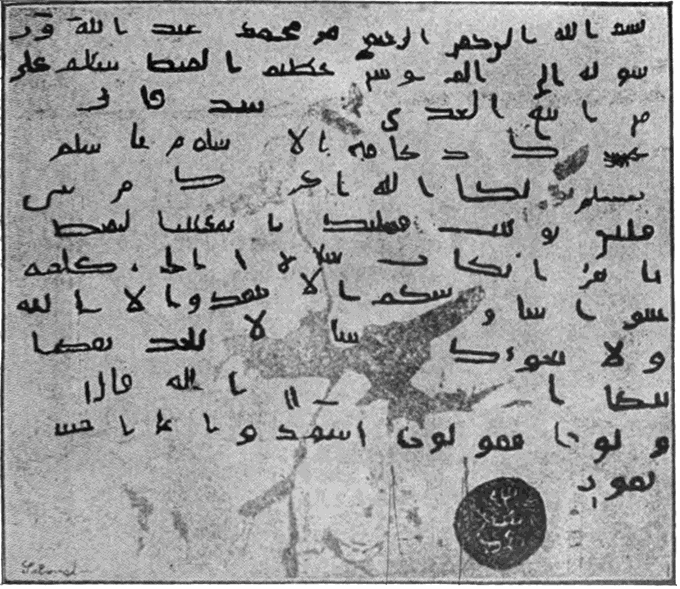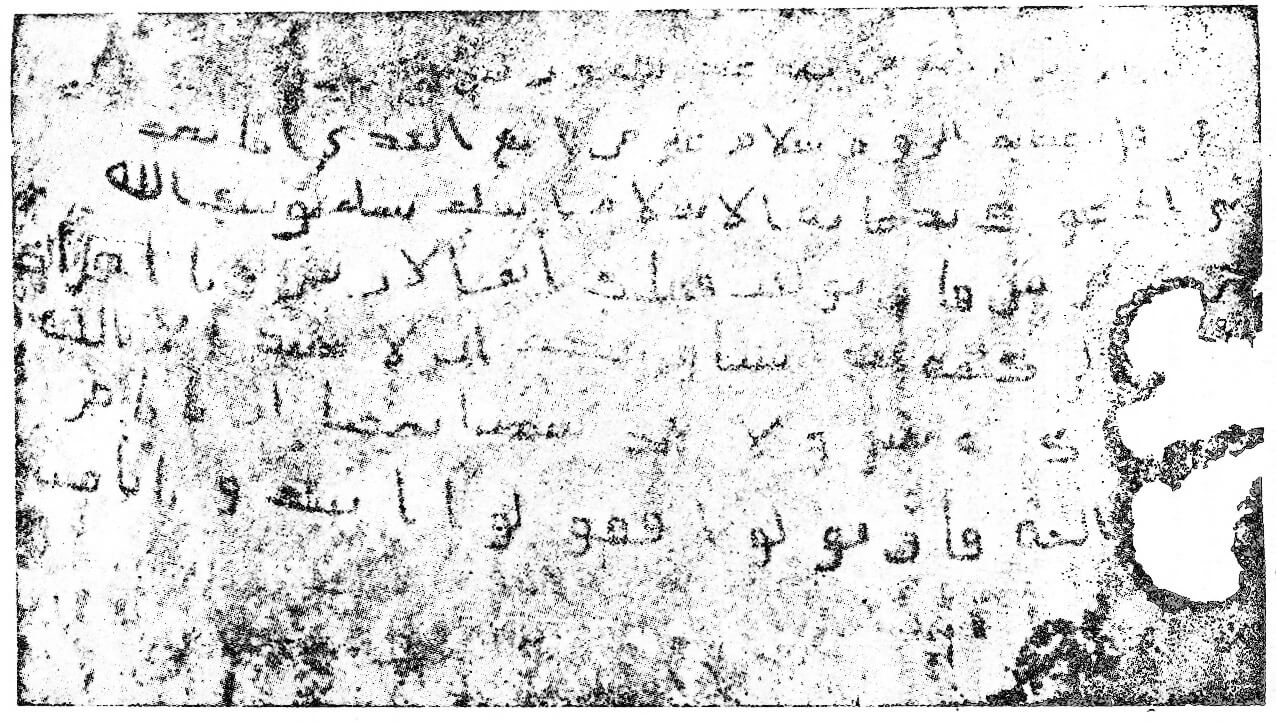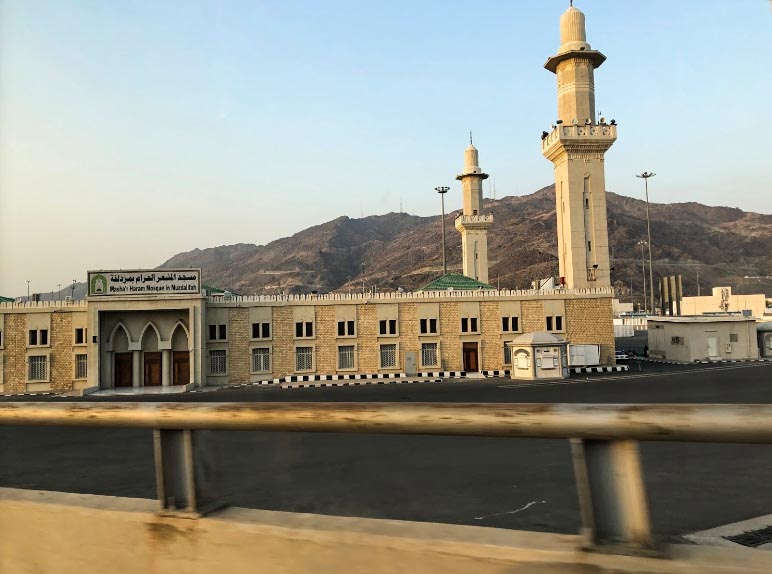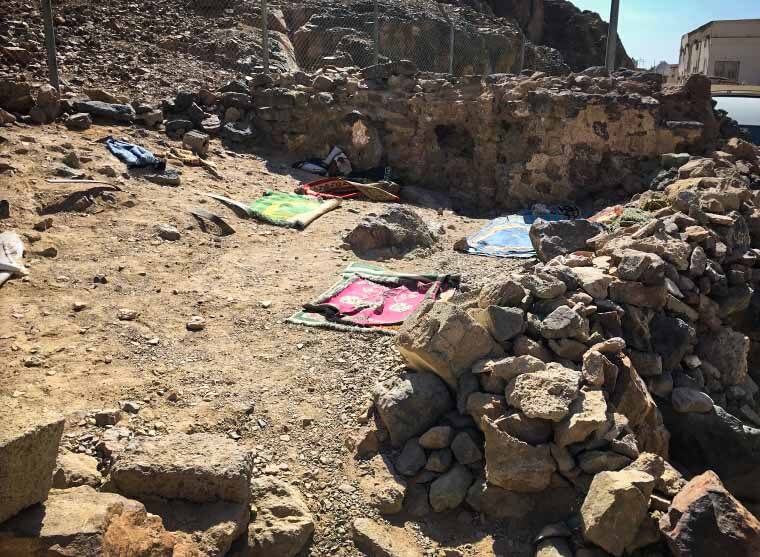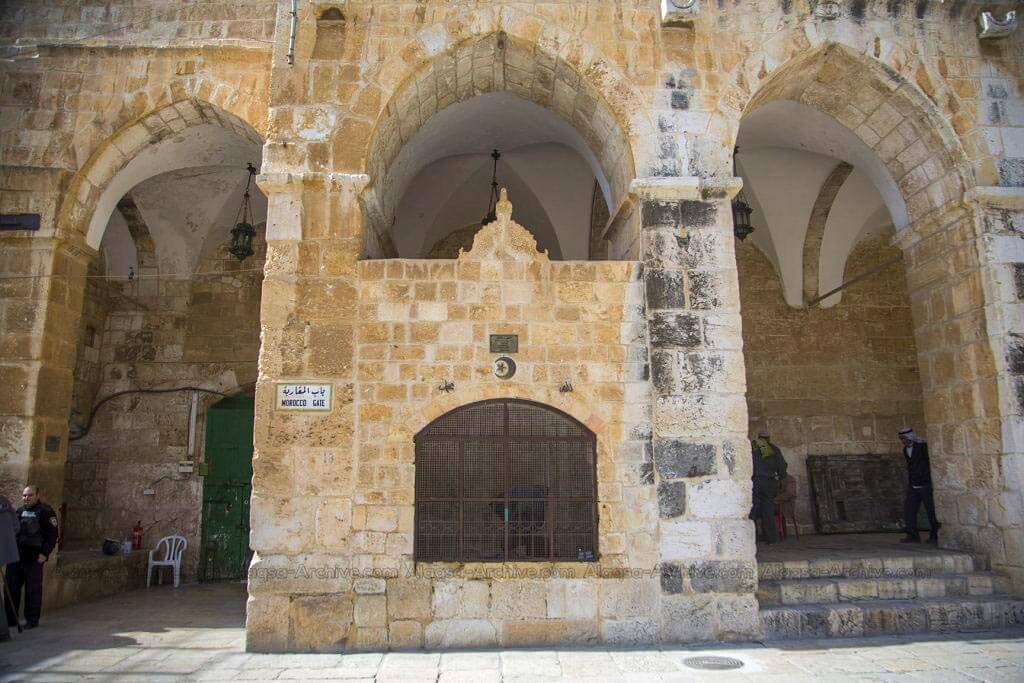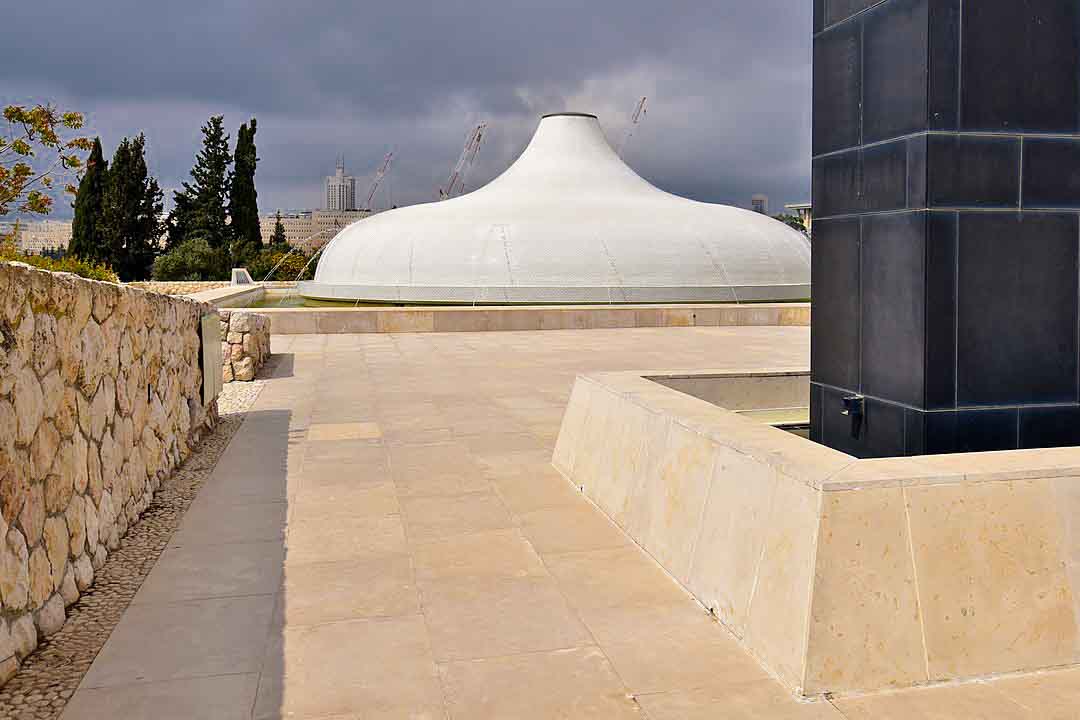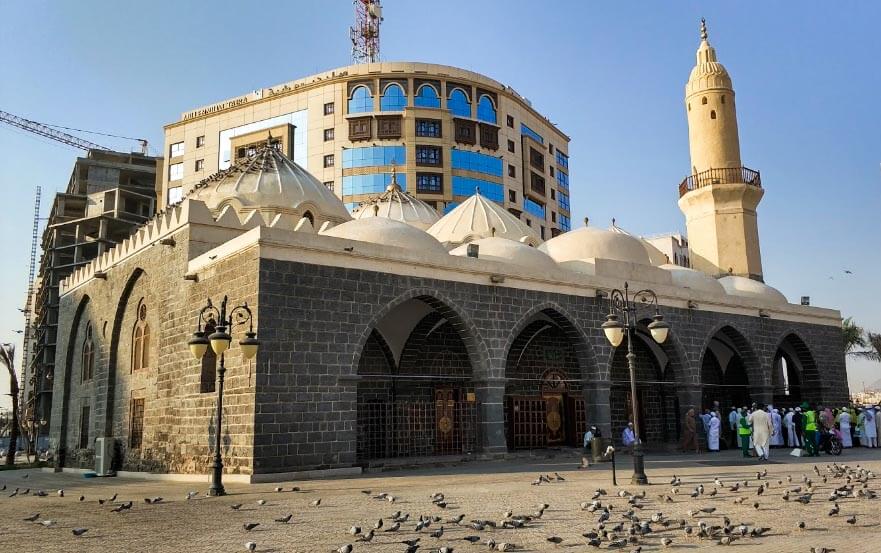Jerusalem, Palestine
Letter to Al-Maqawqis
To the Byzantine emperor
To the governor of Bahrain
Letter to Al-Maqawqis
Al-Muqawqis is mentioned in Islamic history as a ruler of Egypt, who corresponded with the Islamic Prophet Muhammad ﷺ.
The letter that Prophet Muhammad ﷺ sent to al-Muqawqis, through his emissary Hatib ibn Abi Balta’ah, and his reply are both available. The letter read:
“In the name of Allah, the Beneficent, the Merciful. This letter is from Muhammad ﷺ the slave of Allah and his Apostle: to Muqawqis, Vicegerent of Egypt.
Peace be upon him who follows the right path. Furthermore, I invite you to Islam and if you become a Muslim you will be safe, and Allah will double your reward, and if you reject this invitation of Islam you will be committing a sin by misguiding your subjects. (And I recite to you Allah’s statement:)
“O People of the Scriptures! Come to a word common to you and us that we worship none but Allah and that we associate nothing in worship with Him, and that none of us shall take others as Lords beside Allah. Then if they turn away, say: Bear witness that we are Muslims (those who have surrendered to Allah).” (Qur’an: Surah 3, Ayah 64)
Seal: Allah’s Prophet, Muhammad ﷺ
Respect of letter by Al-Maqawqis
Al-Muqawqis ordered that the letter should be placed in an ivory casket, to be kept safely in the government treasury, and he sent the following reply:
From Muqawqis I read your letter and understood what you have written. I know that the coming of a Prophet is still due. But I thought, he would be born in Syria – I have treated your messenger with respect and honor. I am sending two maids for you as presents. These maids belong to a very respectable family amongst us. In addition I send for you clothes and a Duldul (steed) for riding. May Allah bestow security on you.
The two maids mentioned are Bibi Maria al-Qibtiyya رضي الله عنها and her sister Bibi Sirin رضي الله عنها.
Prophet Muhammad ﷺ’s letter to Muqawqis was eventually preserved in the Christian monastery of Akhmim in Egypt. There a recluse pasted it on his Bible. The letter was written on a parchment. From there a French orientalist obtained it and sold it to Sultan Abdülmecid of Turkey, for a consideration of £ 300.[citation needed] The Sultan had the letter fixed in a golden frame and had it preserved in the treasury of the royal palace, along with other sacred relics. Some Muslim scholars have affirmed that the letter was written by Hz. Abu Bakr رضي الله عنه.
To the Sassanian Emperor
Islamic tradition tells a story in which Khosrow II was a Persian king to whom Prophet Muhammad ﷺ had sent a messenger, Hz. Abdullah ibn Hudhafah as-Sahmi رضي الله عنه, along with a letter in which Khosrow was asked to preach the religion of Islam. The account as transmitted by Muslim tradition reads:
“In the name of Allah, the Beneficent, the Merciful. From Muhammad ﷺ, the Messenger of Allah, to Kisra, the great (leader/head) of the Persians. Peace be upon him, who seeks truth and expresses belief in Allah and in His Prophet and testifies that there is no Allah but Allah and that He has no partner, and who believes that Muhammad ﷺ is His servant and Prophet. Under the Command of Allah, I invite you to Him. He has sent me for the guidance of all people so that I may warn them all of His wrath and may present the unbelievers with an ultimatum. Embrace Islam so that you may remain safe (in this life and the next). And if you refuse to accept Islam, you will be responsible for the sins of the Magi.”
Islamic tradition further states that Khosrow II tore up Prophet Muhammed’s ﷺ letter saying, “A pitiful slave among my subjects dares to write his name before mine” and commanded Badhan, his vassal ruler of Yemen, to dispatch two valiant men to identify, seize and bring this man from Hijaz (Muhammad ﷺ) to him.
When Hz. Abdullah ibn Hudhafah as-Sahmi told Prophet Muhammad ﷺ how Khosrow had torn his letter to pieces, Hz. Muhammad ﷺ promised the destruction of Khosrow II stating, “Even so, Allah shall destroy his kingdom.”
To the king of Ethiopia
Letter of the Prophet Muhammed to Armah, the Negus:
Letter of the Prophet of Islam, peace be upon him. In the name of Allah the most beneficial the Merciful. Muhammed ﷺ the Prophet of Islam to Nagashii king of Abyssinia:
Peace to you that I thank Allah for you, Allah, who there is no Allah but He, the King, the Holy peace insured dominant, and I bear witness that Jesus son of Mary, the Spirit of Allah and his speech was delivered to the Virgin Mary. Allah created Jesus from his spirit, just as he created Adam with his hand, and I invite you and your soldiers to Allah Almighty, has reached and advised receive my advice, and peace be upon those who follow guidance.
Seal: Allah’s Prophet Muhammad ﷺ
To the governor of Bahrain
Letter of the Prophet Muhammed to Munzir ibn Sawa Al Tamimi
In the name of Allah the Beneficent, the Merciful: From Muhammad ﷺ the Messenger of Allah to Munzir bin Sawa, may peace be on you! I praise Allah, who is one and there none to be worshiped but except Him. I bear evidence that there is no Allah but Allah and that Muhammad ﷺ is a servant of Allah and His Prophet. Thereafter I remind you of Allah. Whoever accepts admonition does it for his own good. Whoever followed my messengers and acted in accordance their guidance; he, in fact, followed me and accepted my advice. My messengers have highly praised your behavior. You shall continue in your present office. You should remain faithful to Allah and his Prophet. I accept your recommendation regarding the people of Bahrain. I forgive the offenses of the offenders.
Therefore, you may also forgive them of the people of Bahrain whoever want to continue in their Jewish or Majusi faith, should be made to pay Jizia.
Seal: Allah’s Prophet Muhammad ﷺ
To the Byzantine emperor
The text of the letter to Heraclius, as transmitted by Muslim historians, reads as follows:
In the name of Allah, the Most Merciful, the Bestower of all Mercy. From Muhammad ﷺ, Worshiper and Messenger of Allah to Heraclius the Great of the Romans:
Peace be upon he who follows the guidance. Furthermore, I invite you with the invitation of peace. If you submit then you will find safety and Allah will double your reward. If you turn away, you will bear the Arians’ sins. “O People of the Scripture! Come to a common word between us and you: that we shall worship none but Allah, and that we shall ascribe no partner unto Him, and that none of us shall take others for lords beside Allah. And if they turn away, then say: Bear witness that we are they who have surrendered (unto Him).
Quran, Chapter: Aal Imran “The House of Joachim” 3:64
Islamic view of Heraclius
In Islamic and Arab histories Heraclius is the only Roman Emperor who is discussed at any length. Owing to his role as the Roman Emperor at the time Islam emerged, he was remembered in Arabic literature, such as the Islamic hadith and sira.
In Muslim tradition he is seen as a just ruler of great piety, who had direct contact with the emerging Islamic forces.
The 14th-century scholar Ibn Kathir went even further, stating that “Heraclius was one of the wisest men and among the most resolute, shrewd, deep and opinionated of kings.
He ruled the Romans with great leadership and splendor.”
Historians such as Nadia Maria El-Cheikh and Lawrence Conrad note that Islamic histories even go so far as claiming that Heraclius recognized Islam as the true faith and Muhammad ﷺ as its Prophet, by comparing Islam to Christianity.
Islamic historians often cite a letter that they claim Heraclius wrote to Muhammad ﷺ: “I have received your letter with your ambassador and I testify that you are the messenger of Allah found in our New Testament. Jesus, son of Mary, announced you.”
According to the Muslim sources reported by El-Cheikh, he tried to convert the ruling class of the Empire, but they resisted so strongly that he reversed his course and claimed that he was just testing their faith in Christianity.


